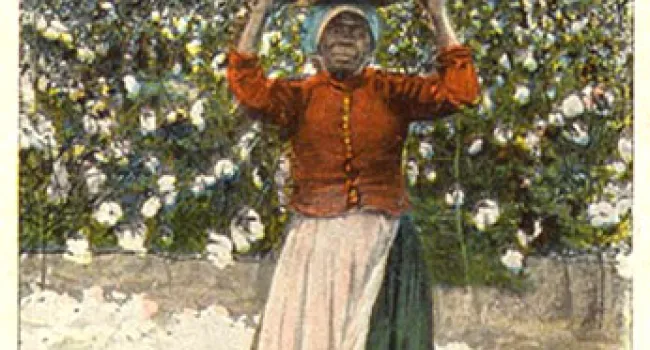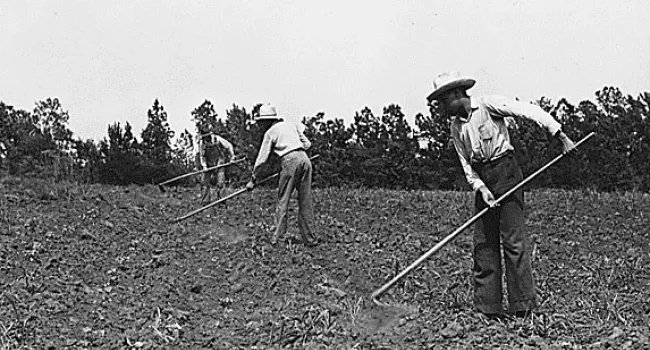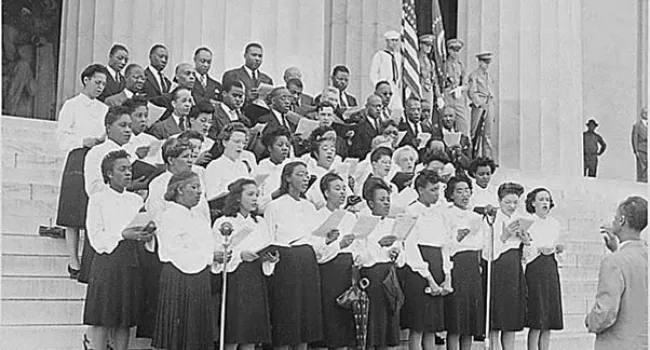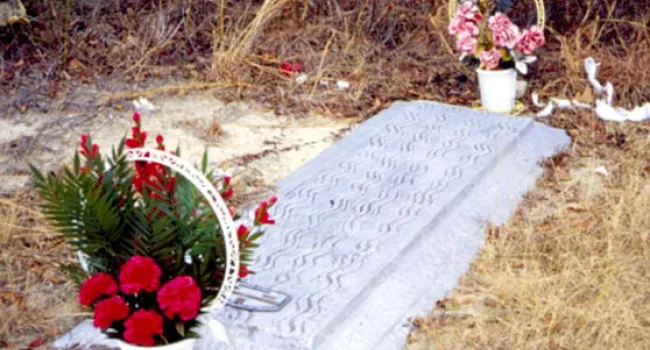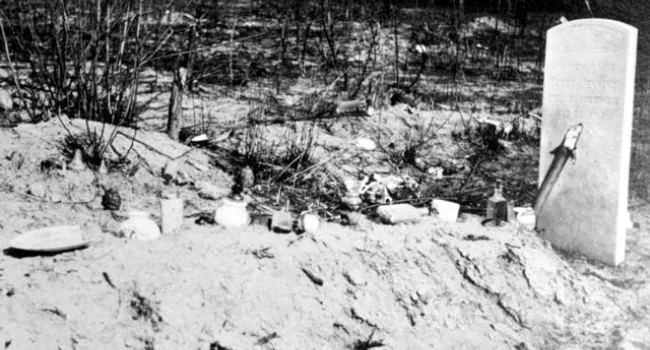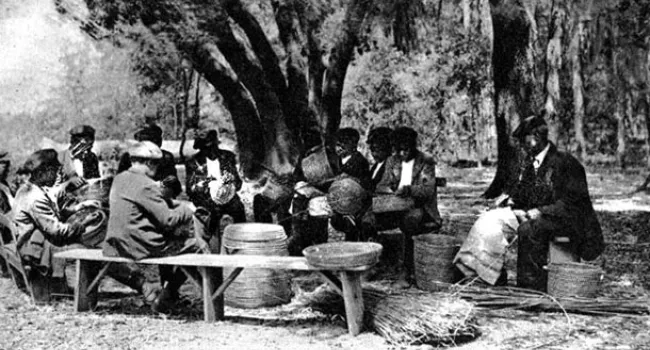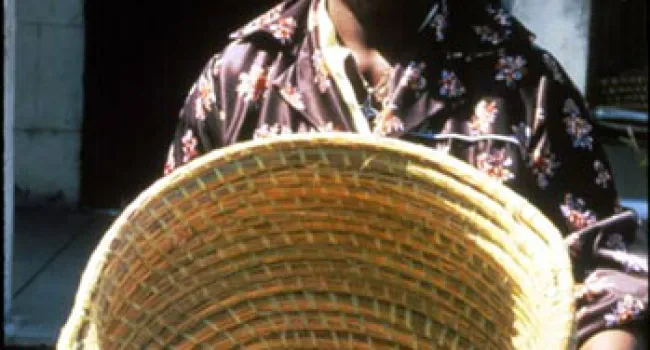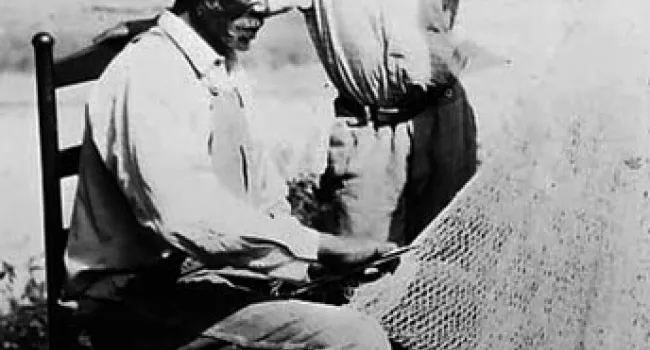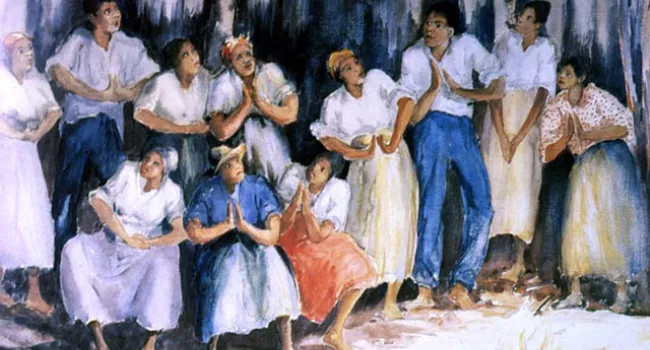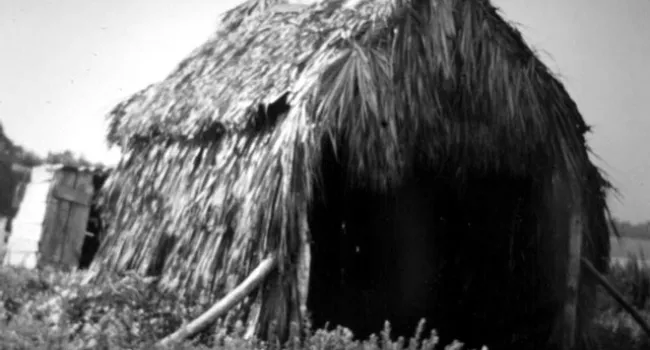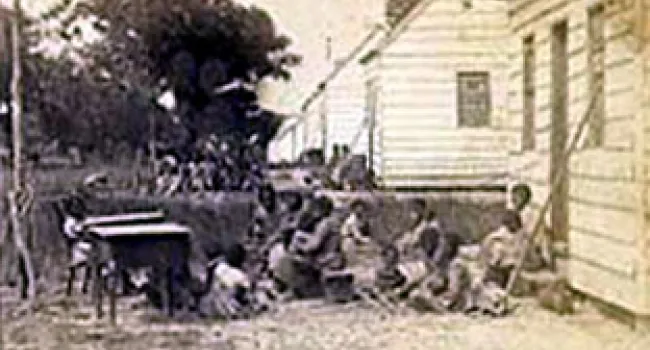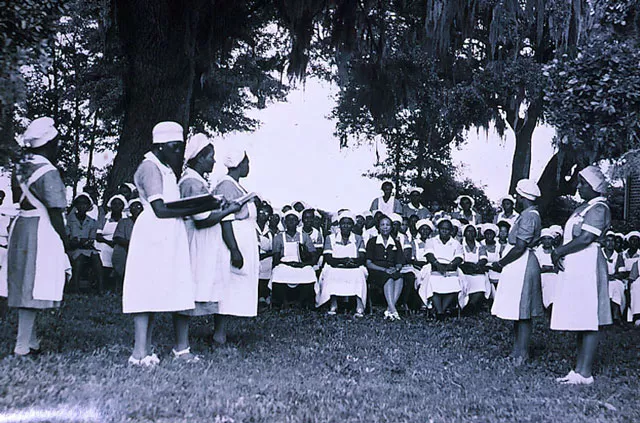
African herbal medicine traditions remained an important part of health care practices in the slave communities. Even after the war, when the Freedman's Bureau and northern educators tried to teach former slaves the advantages of European health and medical practices, African folk medicine continued its influence through the work of Granny midwives. At the Penn School, in the early 20th century, Granny midwives, photographed here in 1910, were taught modern hygiene in special classes; with very few African-American doctors available in the Lowcountry, their skills were an important community resource.
From the Penn School Collection. Permission granted by Penn Center, Inc., St. Helena Island, SC.
Standards
- 4.5.CO Compare the roles of various groups on Reconstruction.
- 4.5.E Analyze multiple perspectives of the economic, political, and social effects of Reconstruction on different populations in the South and in other regions of the U.S.
- 8.4.CC Analyze continuities and change in the African American experience in the period of Reconstruction and Jim Crow eras within South Carolina.
